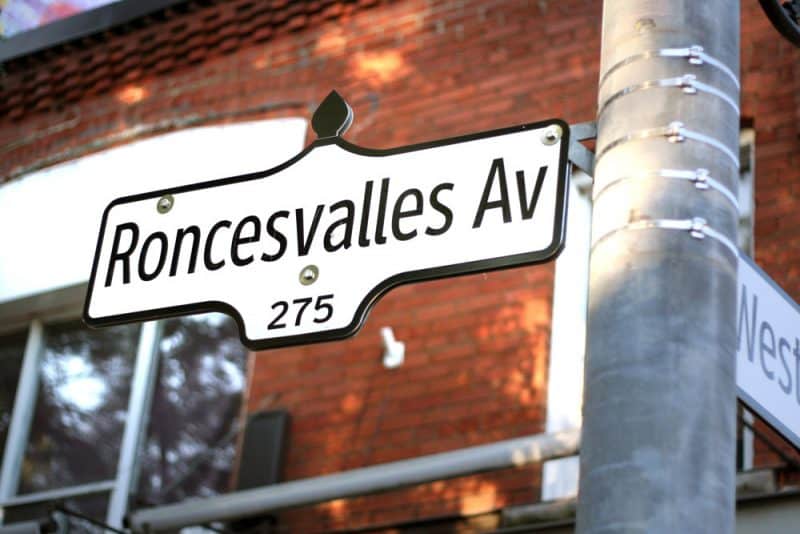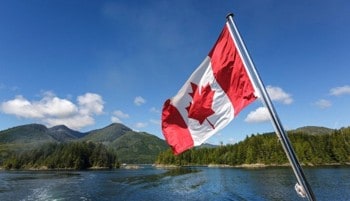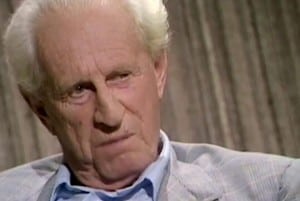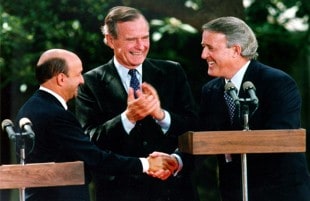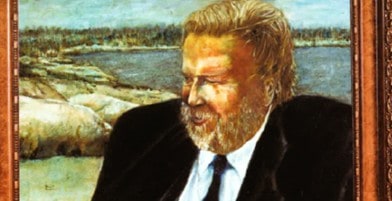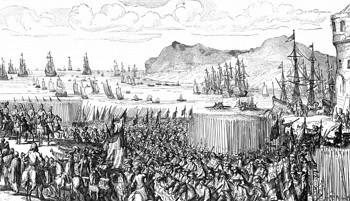Many of those who are demonstrators against the various international and economic summits conventionally define themselves as anarchists or radical Left. Opposition to capitalism and globalization today is said to belong to the Left. However, it could be argued that some of the profoundest critiques of capitalism, technology, and globalization have historically come from the traditionalist Right (for example, Samuel Taylor Coleridge, G.K. Chesterton, Hilaire Belloc, T.S. Eliot, C.S. Lewis, J.R.R. Tolkien), and from “social conservatives of the Left” such as John Ruskin, William Morris, […]
Autor: Mike Krupa
Wegierski: Brian Mulroney and the failure of Canadian conservatism in the 1980’s
Brian Mulroney may be one of the most disappointing Prime Ministers Canada has ever had. As leader of the federal Progressive Conservative party, Mulroney at that time ostensibly represented the main focus of what could be called the “Centre-Right Opposition” in Canada. The use of the term “Centre-Right Opposition” is meant to suggest the perennial underdog status of that option in Canadian politics, especially after the federal election of 1963, when Liberal Lester B. Pearson defeated the staunch Tory, John Diefenbaker. As each successive decade […]
Wegierski: Celebrating the 100th anniversary of the regaining of Polish independence amidst the megapolitan world-city
Mark Wegierski shares some recent Polish experiences in Toronto. On October 24, 2018, I attended the event “Celebrating Poland” at the showcase Harbourfront Centre in downtown Toronto, as part of the 39th edition of the Toronto International Festival of Authors (TIFA). There were three young Polish writers featured: Dorota Maslowska – author of, among others, Snow White and Russian Red (originally published in Polish in 2002 when she was only nineteen) – set in the social milieu of a low-life Polish gangster; Jakub Zulczyk – […]
Wegierski: Polish language knowledge and Polish-Canadian identity
Mark Wegierski asks, can there exist a Polish-Canadian identity with declining Polish language knowledge in Canada? In the statistics of the Canada Census, over the last few decades, the percentage of persons of Polish descent who claim knowledge of the Polish language, is not particularly large (around a third). Indeed, it can be seen that knowledge of the Polish language is declining among the generations of Polish descent born in Canada. In my opinion, this places the Polish-Canadian newspapers, most of which appear almost exclusively […]
Wegierski: Herbert Marcuse vs. Aldous Huxley’s Brave New World — a thought experiment
Mark Wegierski speculates what Herbert Marcuse would say about the famous dystopia. The thought-experiment is a recognized form of obtaining certain insights, even in the strictest hard sciences. Aldous Huxley, who passed away fifty-five years ago, on November 22, 1963, would have probably appreciated laying out a hypothetical situation like the one below. Let us say that Herbert Marcuse, the Frankfurt School theorist, often considered as one of the intellectual progenitors of the Sixties’ revolutions, were re-awakened several hundred years hence, in the world of […]
Wegierski: Thirty years since the Canada-U.S. Free Trade Agreement
Mark Wegierski looks at Mulroney’s main “right-wing” achievement. It had appeared, in the summer of 1987, that Brian Mulroney’s Progressive Conservative federal government was headed for one of the worst defeats in Canadian political history. In many of the 1986 and 1987 polls, the federal P.C. party stood at about a quarter of committed popular support, behind both the Liberals and the New Democratic Party (NDP), Canada’s social democrats. Indeed, the NDP had temporarily surged into first place. Despite the early hopes placed on him, […]
Wegierski: George Parkin Grant in Canadian Context
This year is the centenary of George Grant’s birth, and thirty years since his passing. George Parkin Grant (1918-1988), is Canada’s leading traditionalist philosopher. The main expression of George Grant’s thought occurs in his four major books: Lament for a Nation: The Defeat of Canadian Nationalism (1965), Technology and Empire: Perspectives on North America (1969), English-Speaking Justice (1974/1985), and Technology and Justice (1986). Philosophy in the Mass Age (1959), and Time as History (1969), are his two major earlier works. Grant is a complex philosophical […]
Wegierski: Commemorating the centenary of George Grant’s birth, and thirty years since his passing
2018 marks the centenary of George Grant’s birth, and thirty years since his passing. George Parkin Grant is still probably the most prominent Canadian traditionalist philosopher. One could sharply ask today — is there still really a place for Grantian-type traditionalism in current-day Canada? First of all, it should be remembered that Grant’s profound and subtle definition of conservatism is very remote from what is its more common definition today, as mostly a tax- and budget-cutting ideology. Despite his greatly impassioned writing, Grant did not […]
Wegierski: The professor and the philosopher — Thomas Hurka and George Grant
In commemoration of 100 years since the birth of George Grant; 30 years since the passing of George Grant. This essay arose out of a piece defending George Parkin Grant – originally written in 1992 — that the Toronto Globe and Mail newspaper had refused to publish. In the last three or so decades, there seems to have emerged a tendency, in the Canadian establishment media, to criticize George Parkin Grant (1918-1988), one of Canada’s pre-eminent thinkers (on those rare instances when he is noticed at […]
Wegierski: On the 330th Anniversary of the Glorious Revolution. The Historical Significance of the English Civil War
The persons who are likely to read konserwatyzm.pl are hopefully very atypical of the prevailing, contemporary North American ethos: profoundly concerned with history and culture, and able to read articles requiring a large degree of cerebral effort and long attention-span. This essay is written with the audacious thesis that the now very distant-seeming English Civil War of 1642-1648, and its real aftermath, the so-called Glorious Revolution of 1688, constitute one of the critical defining experiences of the new cultural identity that can be termed Anglo-Americanism, […]



